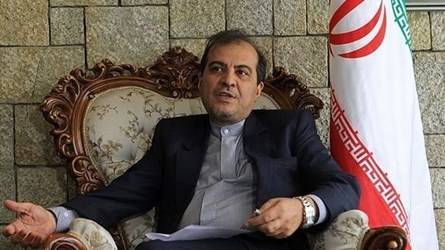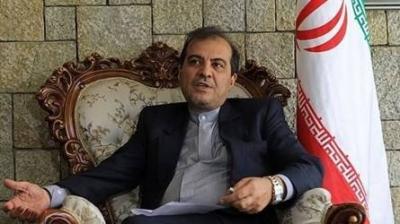Iran's senior assistant to the foreign minister for special political affairs, Ali Asghar Khaji, announced that a good agreement was reached during the fifteenth Astana meeting in Sochi regarding various issues related to the Syrian crisis.
The IRNA agency reported on Wednesday evening that Asghar Khaji stated that during the trilateral meeting today, the latest developments in the Syrian arena were reviewed, and the participants in their final statement reached a good agreement on various issues, including the situation on the ground, terrorism, humanitarian programs, and the constitutional committee. Khaji said, "During our bilateral discussions with the Russian, Turkish, and UN delegations, we reached a good agreement on the continuation of joint work."
The senior assistant to the Iranian foreign minister also referred to his recent visit to Damascus and discussions with President Bashar al-Assad and several senior Syrian officials, noting his country's supportive position for a political solution to the crisis and the continued work of the constitutional committee in the country.
The fifteenth Astana meeting in Sochi, which began its work yesterday at the level of senior experts from the negotiating states in the Astana format and concluded on Wednesday afternoon, issued a final statement with 17 points in which the participants condemned the interference in Syrian oil revenues, affirming that these resources belong to the Syrian government.
The three countries sponsoring the Astana negotiations (Iran, Turkey, and Russia) expressed through their joint statement concern regarding the strengthening of militias in the Syrian city of Idlib, emphasizing the need to implement the "Idlib Agreement." The statement called for the protection of the territorial integrity, independence, and sovereignty of the Syrian Arab Republic, and compliance with the goals and rules of the United Nations in this regard. The trio of "Iranian, Turkish, Russian" also called in their statement for an end to Israeli attacks against Syria, describing this behavior as a violation of international law and a threat to regional security.




